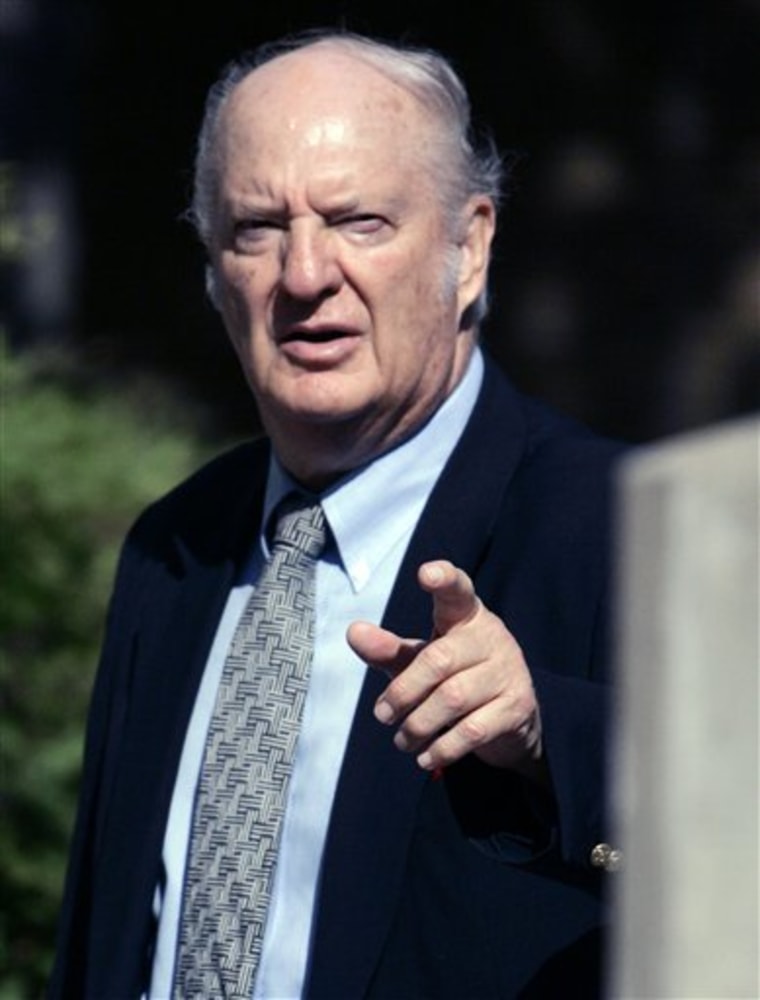Retired FBI agent Jim Ingram, who helped state and federal officials reopen long-dormant investigations of killings from Mississippi's violent civil-rights era, has died. He was 77.
Ingram, a 30-year FBI veteran, died Sunday of complications from pancreatic cancer, said his son, James M. Ingram. The elder Ingram led bureau offices in Chicago and New York before retiring in 1982.
The Oklahoma native was among the agents who opened the FBI's first office in Mississippi in the weeks after three civil-rights workers disappeared in Neshoba County on June 21, 1964.
In what was known as the "Mississippi Burning" case, agents found the bodies of Michael Schwerner, James Chaney and Andrew Goodman buried in an earthen dam on Aug. 4, 1964, several miles from where they had been abducted by Ku Klux Klansmen.
In 1967, seven men were convicted of federal charges of violating the civil rights of the men killed. None served more than six years in prison. The trial for Edgar Ray Killen, a reputed Klan leader and part-time preacher, ended in a hung jury.
Prosecutor: Invaluable to investigation
In 2005, Ingram helped with the investigation as Mississippi prosecutors brought the first-ever state charges in the case. On June 21, 2005 — 41 years to the day after the three men disappeared — a Neshoba County jury convicted Killen on three counts of manslaughter for masterminding the slayings. Killen was sentenced to three consecutive 20-year terms and remains in a state prison.
State Attorney General Jim Hood said Monday that Ingram was invaluable to the revived investigation, knocking on doors and persuading witnesses to speak to authorities.
"He had the trust of the confidential informants to be able to contact them and they knew that he would not disclose their identity," Hood said. "He was the perfect go-between, between us and the confidential informants whose identities have been and will continue to be protected forever."
In 2007, Ingram helped FBI agents reopen an investigation into the May 2, 1964, abduction and killing of Henry Hezekiah Dee and Charles Eddie Moore, two black teenagers. Their mostly just skeletal remains were pulled from the Mississippi River more than two months later as investigators were still searching for Schwerner, Chaney and Goodman.
Justice Department attorney Paige Fitzgerald led the prosecution of reputed Klansman James Ford Seale in the case. She said Ingram was "an incredibly effective investigator" who was genuinely interested in what people had to say.
"He could just charm anybody he ran across," Fitzgerald, now deputy chief of the Justice Department's Cold Case Unit, said Monday. "Even the most hardened Klansman who would slam the door in anybody's else's face would invite him in for a cup of coffee."
Conviction in 2007
On June 14, 2007, a federal jury in Jackson convicted Seale of kidnapping and conspiracy. A judge sentenced him to three life terms. Seale is in federal prison and is appealing the conviction.
Thomas Moore, Charles Eddie Moore's brother, praised the former agent for stepping in to help with Seale's prosecution long after retiring.
"If it hadn't have been for him, maybe the trial wouldn't have happened," Moore said.
Hood said Ingram's death will make it more difficult for prosecutors in Mississippi to reopen other civil rights era cold cases.
"You lose someone of that stature and (with) that history in this state and respect as a lawman, it's hard to replace that," Hood said.
Ingram is survived by his wife, Marie, and their three sons: Steven W. Ingram of Madison, Stanley T. Ingram of Edwards and James M. Ingram of Madison.
More on:
